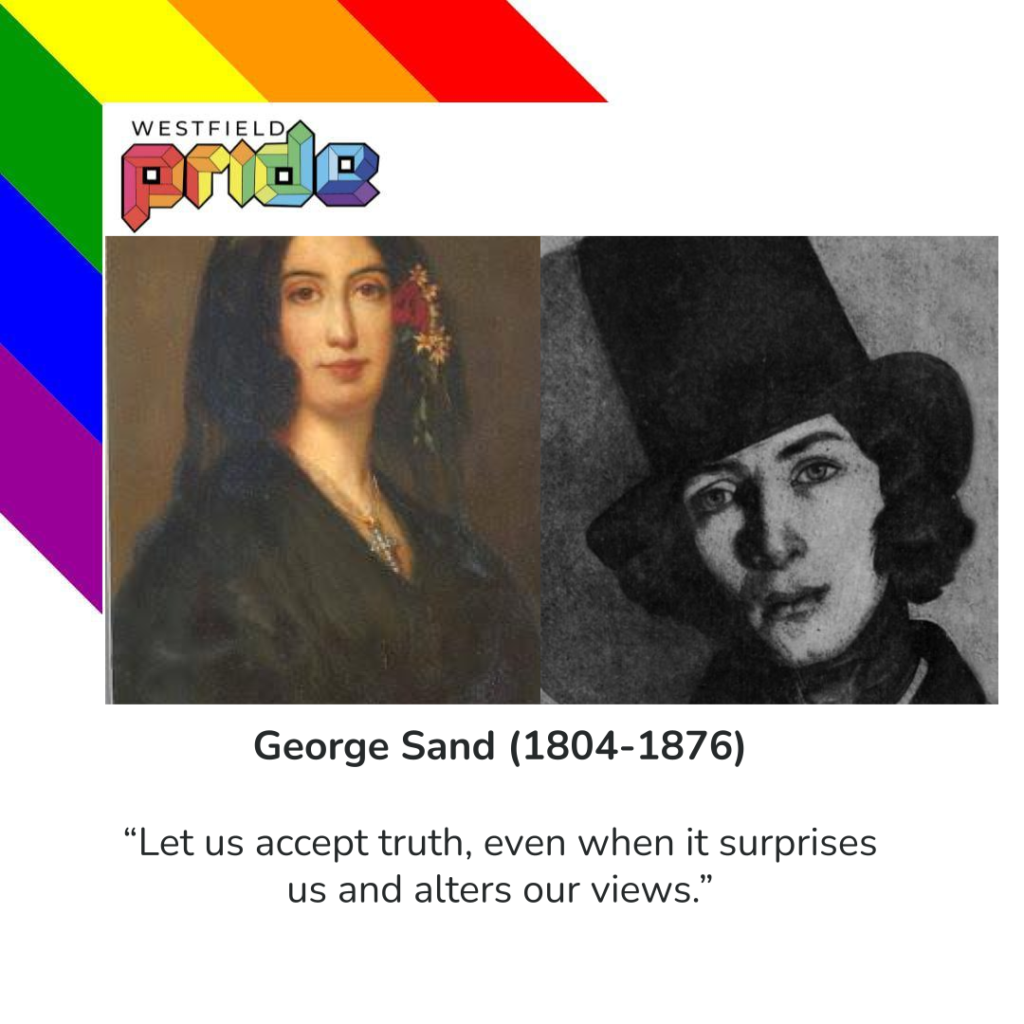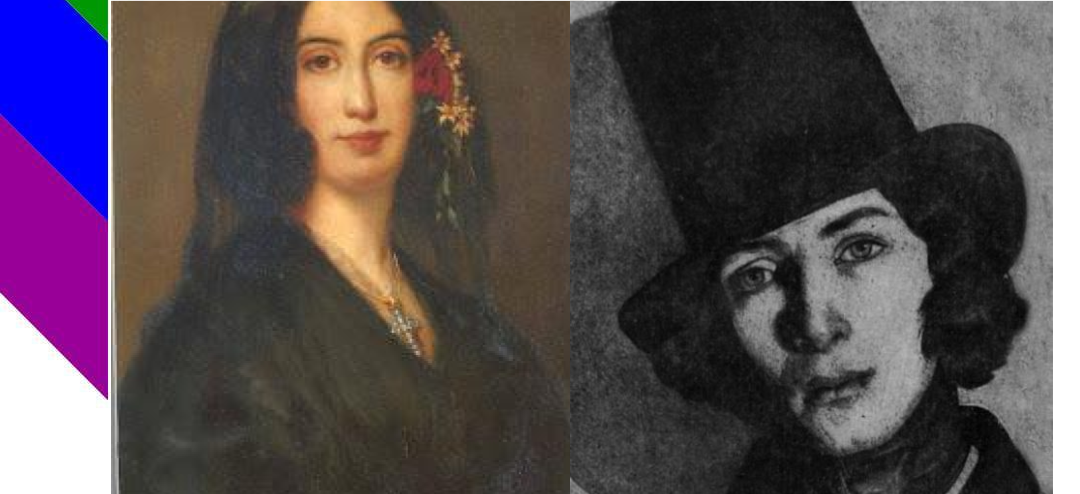
An iconic figure in LGBTQ+ history, French author George Sand, the pseudonym for Amantine-Lucille-Aurore Dupin George Sand, was an early pioneer for women’s rights and independence through both her personal and professional life. Flouting the rules and etiquette of the 19th Century, she chose to wear men’s clothing and smoke in public and to conduct high-profile affairs with many artists and intellectuals, including the composer Frederic Chopin and the writers Alfred de Musset and Prosper Mérimée. Her intimate friendship with the actress Marie Dorval continues to spark debate and discussion, and while it has never been verified, many scholars believe that Sand was bisexual. She was married once and had two children. One of the most widely read authors of the Romantic Era, she wrote plays, children’s tales, political texts, an autobiography, and more than 70 novels – most espousing surprising progressive themes. Indiana (1832) examines the plight of women in the 19th century and critiques the institution of marriage, while Lélia (1833) advocates the same standard of morality for men and women. Considered her masterpiece, Consuelo (1842-1843) tells a tale of artistic growth and moral development, reflecting the author’s love of passion, freedom, and adventure, and The Devil’s Pool (1846) explores the struggle in rural France between tradition and change. In short, George Sand’s extraordinary life and work still has a profound resonance and meaning in today’s world.
“Let us accept truth, even when it surprises us and alters our views.” George Sand


Comments are closed